A3: Examples of completed projects
Section outline
-
MEd projects are as diverse and dynamic as the educators who complete them. Rooted in professional practice and driven by real-world challenges, these projects take many forms—from curriculum design and open educational resources to children's books, community workshops, published manuscripts and book chapters, digital toolkits, and narrative inquiries. The following samples showcase the range of innovative and meaningful contributions TRU graduate students have made to their fields and communities. Additionally, a sample of book chapters by TRU faculty members demonstrate exemplary critical reflective practice, as well as application of auto-ethnography and critical discourse analysis.
-
Trigger Warning / Content Note
"You don't have to keep going: Reflections navigating crises and precarity as an excluded scholar"
By Dr. Amie McLean, Intercultural Coordinator, Faculty of Student Development
This chapter by Dr. Amie McLean contains detailed personal reflections on complex and distressing life events, including medical crises involving children, poverty, housing and food insecurity, illness, academic exclusion, disability, structural oppression, and caregiving precarity. It also discusses experiences of systemic discrimination, institutional betrayal, and the emotional and physical toll of navigating academia while parenting through intersecting crises. Readers who may be affected by these themes are encouraged to engage with care and seek support as needed.
This is a chapter from the book Parenting While PhDing (2025), edited by Jackie Hoermann-Elliott and Jenna Morton-Aiken.
-
"Critical discourse analysis as methodology for graduate project research"
By Dr. Tanya Manning-Lewis, Assistant Teaching Professor, School of Education
This chapter introduces Critical Discourse Analysis (CDA) as a powerful and accessible methodology for graduate student research. Dr. Tanya Manning-Lewis outlines the foundational principles of CDA, emphasizing its focus on power, ideology, and representation in texts. Using a case study of a British Columbia social studies textbook, she demonstrates how CDA can uncover the ways dominant narratives and omissions reinforce systemic inequalities—particularly in the representation of racialized minorities. The chapter provides a step-by-step guide for applying CDA, including forming research questions, selecting content, analyzing context, identifying themes, and drawing conclusions. Manning-Lewis underscores the importance of researcher positionality and reflexivity throughout the process, advocating for CDA as a tool for critical, transformative, and justice-oriented educational inquiry.
This chapter was published in Academic Project Designs and Methods (2022), which was edited by Darlene E. Clover, Kathy Sanford, and Willow Samara Allen.
-
"Behind the Vale: Unmasking Anti-Blackness in Presidential Discourse and Responses to Racialized Students"
By Kaleb L. Briscoe, Veronica A. Jones, and Melvin A. Whitehead (2025)
This article offers an exemplar of Critical Discourse Analysis (CDA) and its use for examining discourses by university presidents, in particular, how CDA can be used to interrogate the variations of discourse that a president uses to respond to racialized incidents on campus. The authors provide a detailed description of their methodology and methods.
-
"Gĩkũyũ Indigenous stories: Preserving cultural knowledge through open educational practices"
By Leticia Kanywuiro
Co-supervisors: Drs Alana Hoare and Mixalhíts'a7
In 2025, Leticia Kanywuiro, MEd project student, sought to document, preserve, and promote Gĩkũyũ Indigenous knowledge by integrating traditional oral storytelling with open educational practices. Utamaduni Bora is an open educational resource (OER) that preserves and promotes Gĩkũyũ language and culture by translating oral stories into digital formats, such as animated videos narrated in both English and Gĩkũyũ, and interactive vocabulary games; and includes freely accessible instructional resources for educators and community members. The curriculum aligns with the Kenyan Competency-based Curriculum grades 1, 2, and 3; specifically, student learning outcomes related to digital literacy, storytelling, and moral lessons.
- Link to Open Educational Resource Utamaduni Bora: https://utamadunibora.trubox.ca/
- Link to Project Poster: Presentation and Lesson Demonstration
-
"The impact of Canada’s immigration policy changes on international students with families"
By Dr. Osuntade Bosede Olubukola
Co-supervisors: Drs Tanya Manning-Lewis and Alana Hoare
Osuntade’s MEd project involved critical discourse policy analysis to examine the effects of Canada's 2024 immigration reforms on international postgraduate students with families. She focused on policy language and institutional responses, which highlighted how changes—such as visa delays and fluctuating work-hour limits—undermined student well-being and family stability, especially in Western Canadian universities. To mobilize the findings and foster dialogue, Osuntade organized a Symposium and panel discussion featuring scholars, administrators, and community leaders. The project calls for more humane, care-centered immigration and institutional policies that prioritize the needs of international student families.
-
"Roots and wings: A voyage of culture, compassion, and resilient growth"
By Anonymous
Co-supervisors: Drs Victoria Handford and Alana Hoare
This MEd project was written as a gift to the author's daughter. The author used Narrative Métissage to weave together family history, cultural reflection, educational philosophy, and life lessons. Drawing on the author’s lived experiences across China and Canada, the paper reflects on themes such as cultural duality, compassion, resilience, and intergenerational wisdom. Each story in the collection is grounded in the values of kindness, perseverance, and emotional intelligence, connecting personal narrative with ancient philosophers' guidance.
Note on anonymization
To protect the privacy of the author and individuals referenced, all identifying information, including photos, has been removed, resulting in some intentional blank spaces in the document. -
"The construction of the political subject in the educational discourse: From the theoretical definition to the Cuban case"
By Dr. Jeisil Aguilar Santos
Course Instructor: Dr. Alana Hoare
In 2024, as part of the EDUC 5280 Capstone Seminar, Santos examined how Cuban educational discourse constructs political subjectivity through state-controlled curricula and textbooks. Drawing on critical theory and personal reflection, Santos explored how schools in Cuba often produce subjugated, passive citizens rather than critically engaged political subjects, and called for a more participatory, dissenting curriculum rooted in students’ lived realities.
Her work was published in the Canadian Journal for New Scholars in Education. All MEd students are encouraged to publish their thesis, project, or capstone papers, and CJNSE is an excellent journal with supports for emerging scholars.
-
